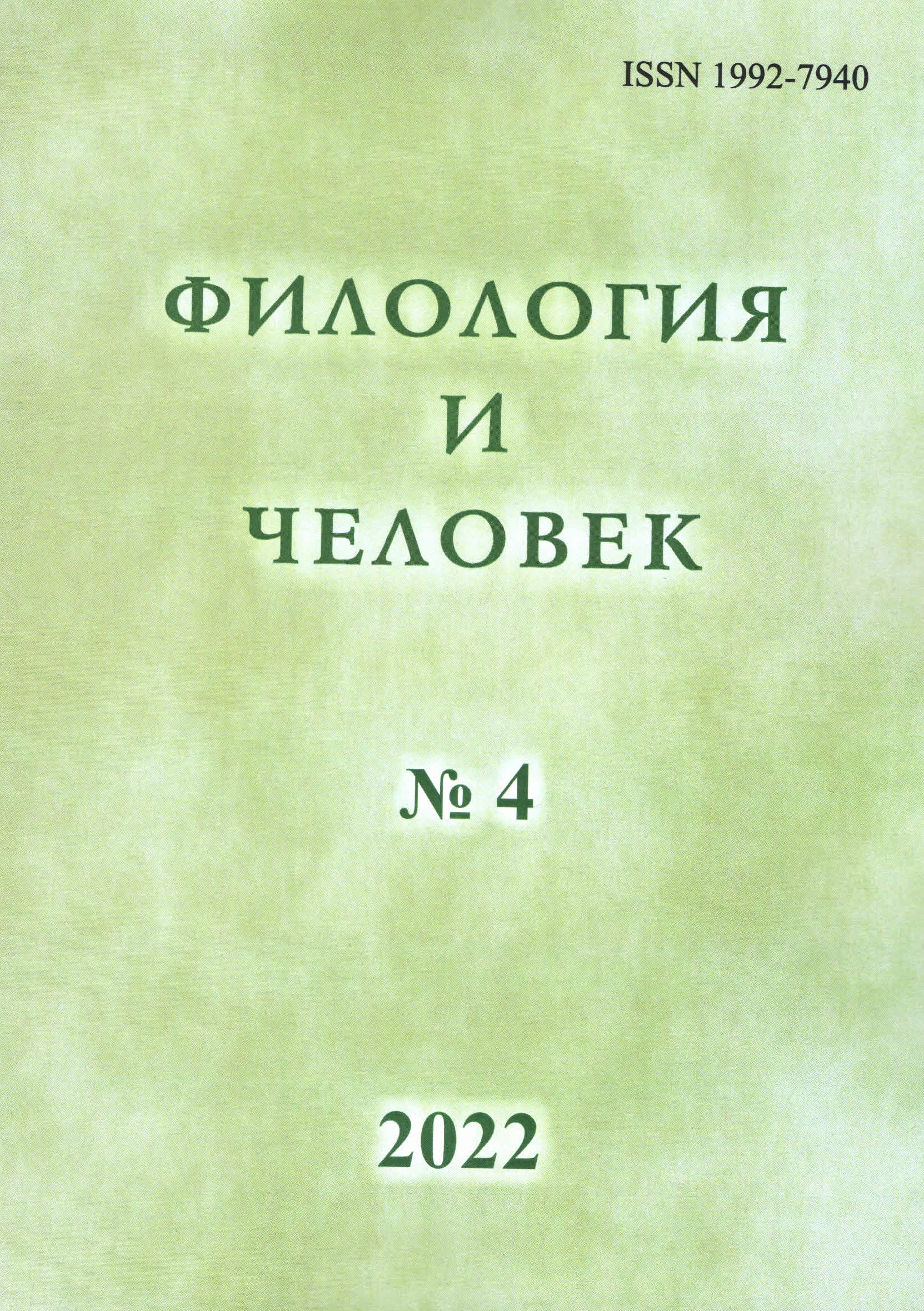The Reader and the Curtain: Eventfulness in “The Death of Dolgushov”
DOI:
https://doi.org/10.14258/(2022)4-11Keywords:
Babel’, eventfulness, poetics of expressiveness, narrative ethosAbstract
The article presents an analysis of eventfulness in the short story “The Death of Dolgushov”, which is part of “Red Cavalry” by I.E. Babel’. Indirectly, through the form and structure of the story, a “mental event” is constructed — the epiphany of the protagonist, who has to face the catastrophic reality of the war and its inversed system of values. Such an effect is created through the binary composition of the story, the first part of it being fragmented and the second, on the contrary, solid. The protagonist “wanders” in the first part of the story and undergoes the event in the second one. The same event is created for the reader. As a result, the reader goes through an experience which is similar to the protagonist’s and has to face self-determination: this, according to V.I. Tjupa, is the “ethos of personal responsibility”. Some of the results of the analysis of the text are supported by the experiment which was carried out by the author of the article. The respondents who read “The Death of Dolgushov”, remember, understand and retell the second half of the story much better than the first one. The binary composition of the story made it possible for the readers to undergo the experience of “wandering” through the text and the subsequent realization of its meaning.
Downloads
References
Жижек С. Событие. М., 2019
Жолковский А.К., Щеглов Ю.К. Работы по поэтике выразительности. М., 1996
Жолковский А.К., Ямпольский М.Б. Бабель. М., 1994
Лотман Ю.М. Структура художественного текста. М., 1970
Петровский М.А. Морфология новеллы // Ars Poetica. М., 1927
Тюпа В.И. Этос нарративной интриги // Вестник РГГУ. Серия «Литературоведение. Языкознание. Культурология». 2015 № 2
Шмид В. Нарратология. М., 2003
Craps S. Beyond Eurocentrism: Trauma Theory in the Global Age // The Future of Trauma Theory. Abington, NY, 2014
Downloads
Published
Issue
Section
License
Редакционная коллегия научного журнала «Филология и человек» придерживается принятых международным сообществом принципов публикационной этики, отраженных, в частности, в рекомендациях Комитета по этике научных публикаций (Committee on Publication Ethics (COPE), Кодекс этики научных публикаций), а также учитываeт ценный опыт авторитетных международных журналов и издательств.
Во избежание недобросовестной практики в публикационной деятельности (плагиат, изложение недостоверных сведений и др.), в целях обеспечения высокого качества научных публикаций, признания общественностью полученных автором научных результатов каждый член редакционной коллегии, автор, рецензент, издатель, а также учреждения, участвующие в издательском процессе, обязаны соблюдать этические стандарты, нормы и правила и принимать все разумные меры для предотвращения их нарушений. Соблюдение правил этики научных публикаций всеми участниками этого процесса способствует обеспечению прав авторов на интеллектуальную собственность, повышению качества издания и исключению возможности неправомерного использования авторских материалов в интересах отдельных лиц.


